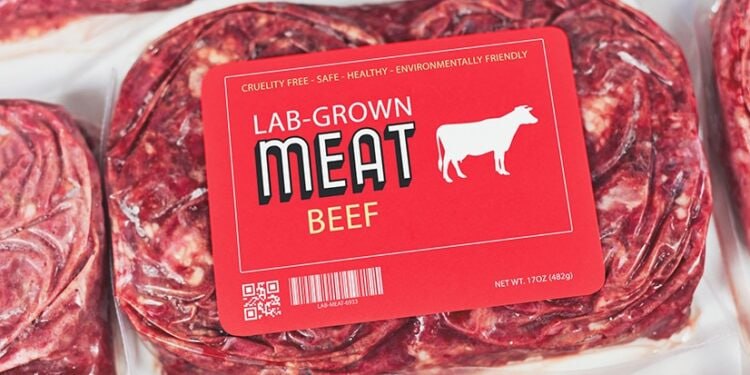Earlier this year, lab-grown meat was touted as the future of sustainable food production, with claims that it could help to reduce farming and contribute positively to the environment.
However, recent research has challenged these assertions, revealing that lab-grown meat may be up to 25 times more harmful to the environment than traditionally farmed meat.
This finding is linked to the need for ‘pharmaceutical-grade’ production to make the product safe for human consumption, which includes removing endotoxin from the cultured mix.
This data comes from a study conducted by a group of chemists and food scientists from the University of California.
The process of producing lab-grown meat involves using growth organisms, which need to be highly purified to aid animal cell multiplication.
The study authors highlight that the environmental cost of this bioprocessing is significantly higher than rearing animals in a traditional way.
Co-author Edward Spang, an associate professor in the Department of Food Science and Technology, stated that their findings suggest cultured meat is not inherently better for the environment than conventional beef.
Even under scenarios using lower pharmaceutical standards, efficient beef production outperforms cultured meat in terms of environmental impact.
These findings suggest that advancing ‘climate-friendly’ beef production could lead to greater reductions in emissions.
The emergence of these new findings raises questions about the feasibility and future of lab-grown meat.
Many were hoping it could serve as a solution to address global meat consumption while reducing environmental impact.
However, the complexities of producing cultured meat and fish have been increasingly recognized, leading to skepticism about its viability as an alternative.
This recent study adds to this skepticism and could impact the progress of the lab-grown meat industry, which has so far garnered significant attention and investment.
Despite the initial optimism, the study highlights that one of the biggest challenges in producing lab-grown meat is the need to remove endotoxin, which is both energy and resource-intensive.
The authors also emphasize that there is a high degree of uncertainty in the findings of previous research into lab-grown meat, particularly regarding the sustainability of the process.
Investing in scaling the production of lab-grown meat without addressing these challenges could ultimately counteract the environmental goals that this sector aims to achieve.


